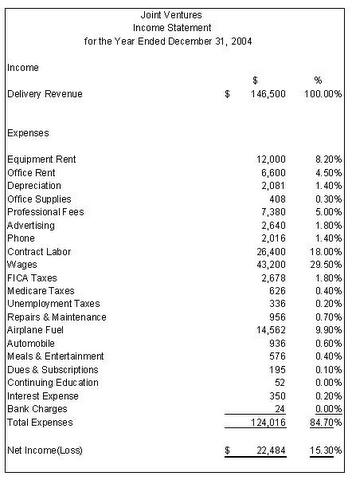Vendor What or who is a vendor?
Content

Join a free community dedicated to third-party risk professionals where you can network with your peers. Shorten the sales cycle by becoming due diligence ready for prospects and customers. Monitor for risks within cybersecurity, business health, financial viability and more.

We streamline legal and regulatory research, analysis, and workflows to drive value to organizations, ensuring more transparent, just and safe societies. An example of a vendor is a man with a stall at a farmer’s market who is selling tomatoes. Additionally, monitoring your business expenses and accounts payable is a breeze in QuickBooks Online. The program hasready-made vendor reportsyou can open at any time andcustomizedepending on your business needs. For example, if the customer’s name is Abbie Marge, you can enter the supplier’s name as Abbie V Marge. This way, QBO will let you have a vendor and customer with the same person.
Types Of Vendors
In a supply chain, a vendor, supplier, provider or a seller, is an enterprise that contributes goods or services. Generally, a supply chain vendor manufactures inventory/stock items and sells them to the next link in the chain. Today, these terms refer to a supplier of any goods or service. It sells products and services directly to the government by obtaining a vendor license and special permissions based on contracts. Suppliers having experience in the private sector can also act as government consultants and offer their expertise to the public sector. An example of B2G is Lockheed Martin selling defense equipment to the military. A producer delivering final products to distributors and retailers and wholesalers supplying those products directly to consumers can also be a vendor.
- The buyer and seller agree to a specific hourly rate and timeframe.
- Learn more on how customers are using Venminder to transform their third-party risk management programs.
- Vendor contracts should also clearly establish when the vendor will be paid, when the goods or services will be delivered and when the business relationship will end.
- Require your critical and high-risk third parties to disclose their critical fourth or Nth parties and inform you of any fourth-party risk or performance issues.
- Vendor contracts will also detail consequences should either party not fulfill their duties and obligations under the contract.
Data Repository empowers you to capture and secure your agreements, leverage contract data to reduce risk, automate your business, and discover new opportunities all within a single dashboard. These benefits include quick and https://business-accounting.net/ efficient contract creation, improved collaboration and negotiation, and instant access to your contract data in real-time. Vendor contracts should clearly establish the price paid in return for the vendor’s performance.
Streamlining the vendor contract process
Some suppliers manufacture the goods that they sell, some merely act as a middleman between the manufacturer and another business that they will sell to. Refers to payments you owe after you’ve already received a good or service, whether that’s due to a contractual agreement or an overdue payment. If you’re starting a new business, one of the most challenging tasks you’ll have ahead of you is finding vendors with which to work. While each vendor is unique depending on what they sell and where the vendor falls within the supply chain, the typical vendor transaction is going to look similar.
- The third sector consists of business activities involving production and exchange – this includes service providers and retailers.
- Third party is an acceptable umbrella term for a vendor, supplier, provider, etc.
- As Venminder completes assessments for clients on new vendors, they are then made available inside the Venminder Exchange for you to preview scores and purchase as you need.
- Yes, your insurance company is a vendor even though you may get a refund from them.
- Gain a 360-degree view of third-party risk by using our SaaS software to centralize, track, automate, assess and report on your vendors.
Vendors can be businesses of any size, from a one-person hotdog stand on the sidewalk to a large vendor that stocks warehouse retailers. After that, the human resources department reaches out to decorators, which become vendors when they are hired to transform the event space into a themed party.
Price and payment
Creating a contract is simple as uploading a template, completing relevant fields, and adding approvers and signers. What Is a Vendor? Knowing the fundamental elements of a vendor contract can protect you from unnecessary disputes and issues later on.
Some companies poorly track deliveries and orders meaning that payments may be late. This leaves the supplier in a bad spot as their cash flow is not secure and they may not trust this existing customer as much as a new customer they acquire. Using tracking software and a good supplier management process, a company can ensure that payments are made on-time and suppliers remain happy. In general, vendors and suppliers provide goods and services directly to your organization to support your operations. In contrast, service providers and third-party vendors provide goods and services to your customers on behalf of your organization. Distributors can sell to the final consumer or other businesses, while suppliers almost always sell to other businesses that will eventually sell to the final consumer. Distributors and suppliers may also both provide physical products to a company.
These retailers are vendors to customers for selling products to them. In supply chain management, a vendor is an individual or a company that provides goods and services to other businesses and customers.
What are vendor companies?
Any business that provides goods and/or services is a vendor to someone. There are four general types of vendors: manufacturers, retailers, wholesalers and service providers.
A vendor is any entity in a supply chain that provides a good or service to a business or the end consumer. On the other hand, a supplier is an entity that provides raw materials for another business. The items are being sold to businesses and will, in turn, generally be stored in inventory either for a short or long period of time . Suppliers usually provide products that are ready to be utilized. Their diverse range may include the supply of drinking water, seafood, IT services, electronic goods, cleaners, outsourcing services, marketing consultants, etc.
Also known as suppliers, they supply a range of products to buyers and receive payments in return. Consumers buy goods from suppliers and use them personally or resell them with a profit margin. As a vendor, you sell a product or service directly to an individual or company. You track your inventory, negotiate prices with buyers, and maintain strong relationships with your customers. Many companies contract with a particular vendor for a specific product. For example, a grocery store hires a specific beverage vendor to provide beverages for them to sell. As a beverage vendor, you negotiate prices and shelf space, deliver advertising materials, and organize the delivery of the goods.
- Sometimes a privilege tax registration is required for a vendor.
- A vendor contract is a business contract between two parties covering the exchange of goods or services in return for compensation.
- As a result, companies that compete on price usually aim to keep their supply chains as short as possible and are likely to buy goods directly from the manufacturer.
- When you go to the grocery store, a gallon of milk costs the same amount for every person, no matter what.
Fragmentation is the use of various suppliers and manufacturers to produce a good. It can also refer to market, industry, and business fragmentation. A vendor is a general term for anyone who buys and sells goods or services. Wherever and however you do business, CT Corporation acts as an extension of your business and helps you stay compliant.

No Comments